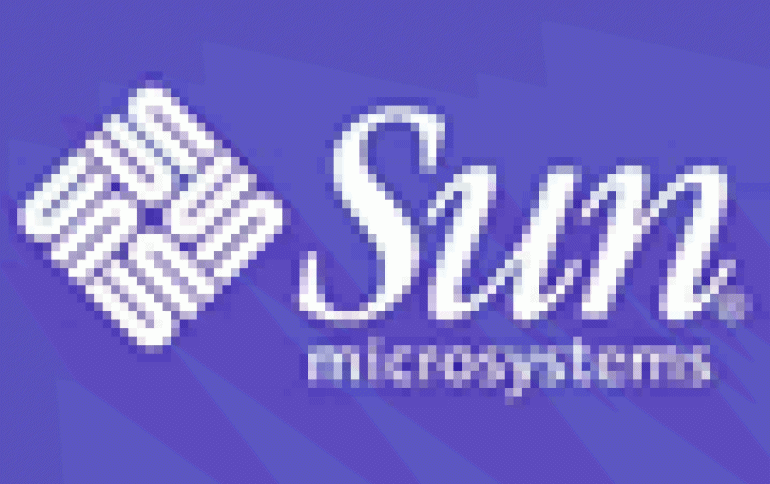
Sun Microsystems Unveils Portable Data Center
Sun Microsystems on Monday unveiled a portable data center housed in a standard shipping container, an undertaking the computer maker has dubbed "Project Blackbox," aimed at customers seeking better efficiency.
The data center -- a collection of computer servers, data storage
equipment, network connections and software -- is typically in a fixed
location, with special cooling and power needs.
But Project Blackbox, currently in the late prototype phase, can be portable and would be ideal for military applications, or for use on an oil platform to help in the discovery of new oil fields, for example, Sun said.
The project is an extension of Sun's focus on providing computer servers and technology that it says use far less power than those of its rivals that use Intel chips.
Chief Executive Jonathan Schwartz said that an increasing number of its customers, such as next-generation Web services providers, are more focused on issues of power and flexibility than on the sheer computing power of their data centers.
He added that Sun believes the computing facilities of the future will be more likely to be modular and flexible. Sun said that Project Blackbox is 20 percent more efficient and delivers five times the capacity of today's typical data center.
Traditional data centers "take a long time to build and they're very expensive and out of sync with the time constraints of most of our customer today," said Dave Douglas, vice president of advanced technology at Sun, which is based in Santa Clara, California.
The data centers of today -- which are little changed from the earliest days of computing -- can cost more than $1,000 per square foot to build, Douglas said.
Project Blackbox, as currently envisioned, is designed to use Sun's Solaris 10 version of the Unix operating system, coupled with Sun server and storage products. Sun said that a single Blackbox can hold up to 240 Sun Fire servers and give more than 1.4 petabytes of storage. A petabyte of data is equivalent to 250 billion pages of text.
Sun's Douglas said that a price hasn't yet been set, but Schwartz said that pricing would likely be a spectrum, with customers able to buy Blackbox as they want it configured, or to purchase it as a service.
Sun said that it had begun working with early customers and it expects commercial availability slated for the middle of 2007.
But Project Blackbox, currently in the late prototype phase, can be portable and would be ideal for military applications, or for use on an oil platform to help in the discovery of new oil fields, for example, Sun said.
The project is an extension of Sun's focus on providing computer servers and technology that it says use far less power than those of its rivals that use Intel chips.
Chief Executive Jonathan Schwartz said that an increasing number of its customers, such as next-generation Web services providers, are more focused on issues of power and flexibility than on the sheer computing power of their data centers.
He added that Sun believes the computing facilities of the future will be more likely to be modular and flexible. Sun said that Project Blackbox is 20 percent more efficient and delivers five times the capacity of today's typical data center.
Traditional data centers "take a long time to build and they're very expensive and out of sync with the time constraints of most of our customer today," said Dave Douglas, vice president of advanced technology at Sun, which is based in Santa Clara, California.
The data centers of today -- which are little changed from the earliest days of computing -- can cost more than $1,000 per square foot to build, Douglas said.
Project Blackbox, as currently envisioned, is designed to use Sun's Solaris 10 version of the Unix operating system, coupled with Sun server and storage products. Sun said that a single Blackbox can hold up to 240 Sun Fire servers and give more than 1.4 petabytes of storage. A petabyte of data is equivalent to 250 billion pages of text.
Sun's Douglas said that a price hasn't yet been set, but Schwartz said that pricing would likely be a spectrum, with customers able to buy Blackbox as they want it configured, or to purchase it as a service.
Sun said that it had begun working with early customers and it expects commercial availability slated for the middle of 2007.

















